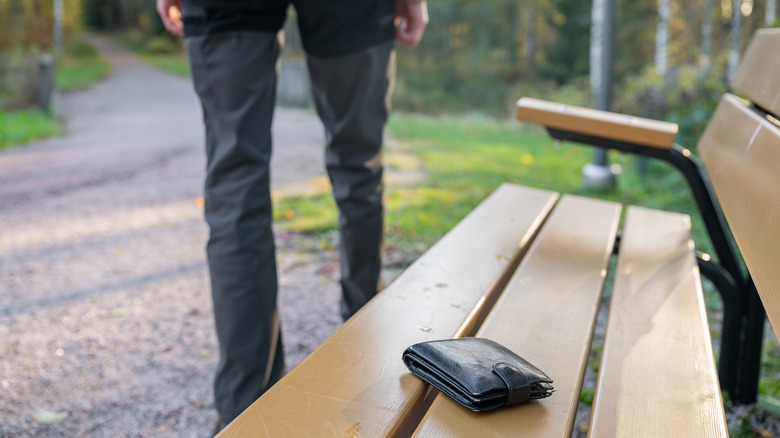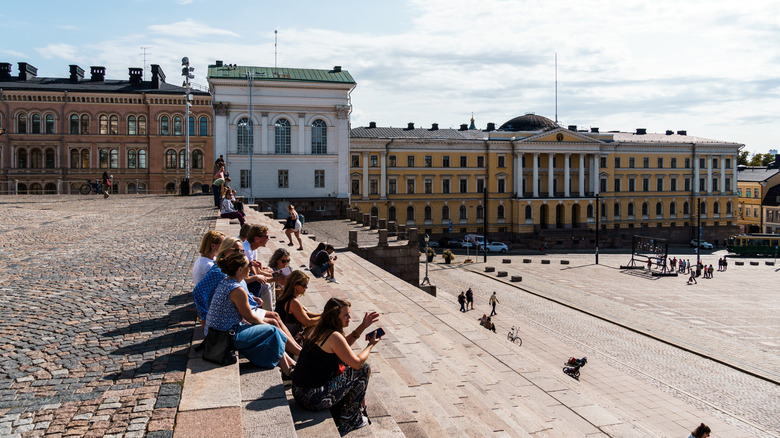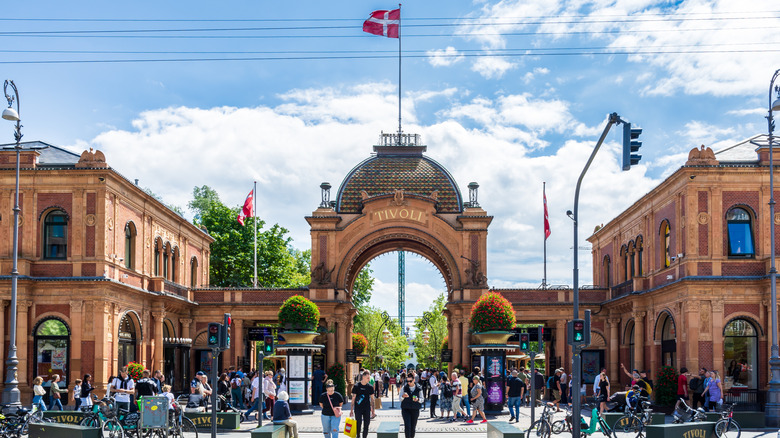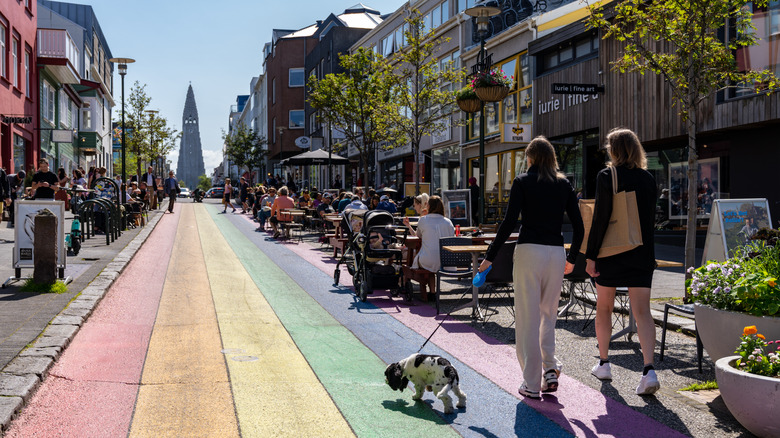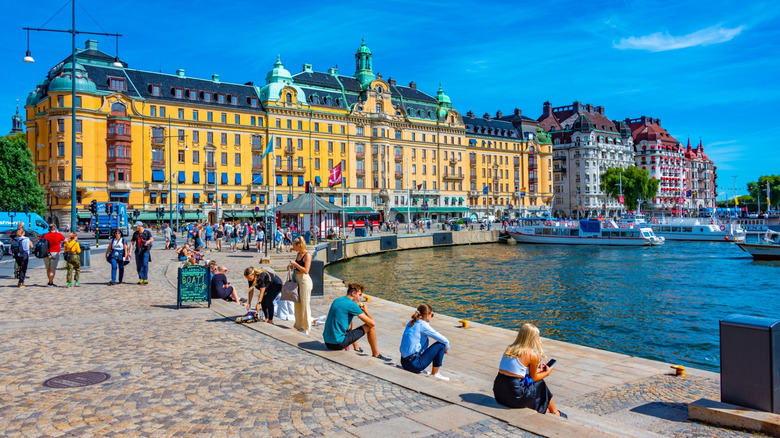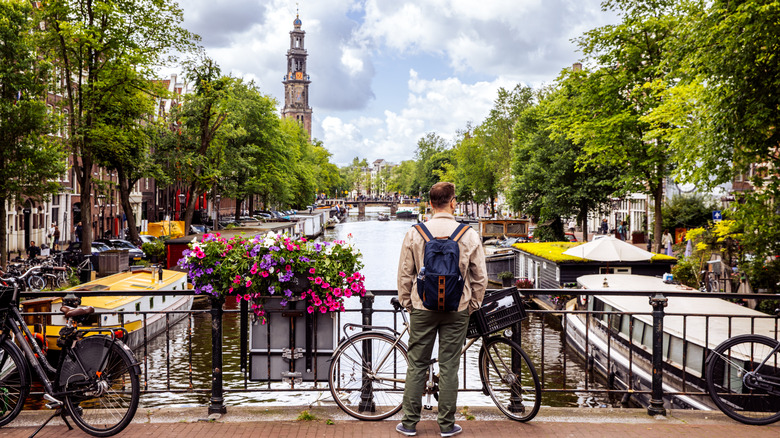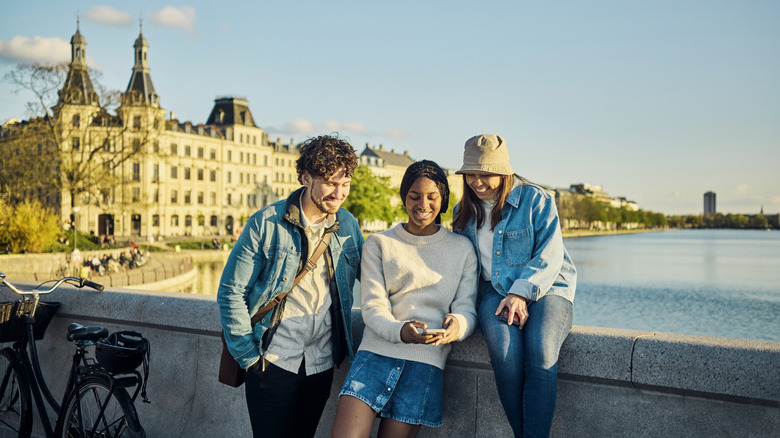5 European Countries Where Strangers Are Most Likely To Return A Lost Wallet
One of the biggest issues travelers have to be cautious about is pickpocketing. Especially in Europe, where phone and wallet snatchers are prevalent in major tourist destinations like Italy, France, and Spain, you are often inundated with warnings to guard your belongings when walking into crowded areas and should never leave your phone sitting out on a table where it could be easily grabbed. This has become a sad reality for many travelers in Europe, but some countries are safer than others. According to the 2025 World Happiness Report, there are even some places where people are more likely to return your lost wallet than run away with it.
The Nordic countries are widely considered to be some of the safest, so it's no surprise that they swept the top rankings. We took a look at the top five happiest countries in Europe and the world, where strangers were rated the most likely to return a lost wallet, as well as the cultural and social aspects that contribute to creating such trusting societies.
Finland
Also found among the best countries in the world to retire in, Finland claimed the top spot for the eighth consecutive year in 2025. Researchers for the World Happiness Report attributed the Finns' high performance to the government's vast array of social programs, stating that "among countries with incomplete social safety nets, more people fall between the cracks."
The study continues to credit Finland for its universally available and high-quality health, education, and social support systems, saying, "Inequality of wellbeing is low in Finland and our data suggest a correspondingly lower need for private charity." It's a common impression that Finns, while not very extroverted, are very kind and open to strangers, as they are used to living in multilingual environments. Look to the Reddit threads on r/Finland, where many users write about their experiences with Finns. The general consensus is that although they are not very extroverted or talkative, they are extremely kind and always willing to lend a hand with a smile.
Denmark
Denmark is no stranger at the top of this list either. The country is widely considered to be one of the most kid-friendly in Europe, not only because it's safe but because there is a lot to entertain kids, from theme parks to bike trails and Viking exhibits. The Danes usually rank among the world's happiest countries, which, according to the Danish Ministry of Foreign Affairs, is something that can be attributed to the high level of trust in the culture: "In Denmark, trust is the basis of most social interactions as well as business and government."
This general societal trust means that people expect others to be honest unless they prove otherwise. It's a principle so prized by Danish culture that the Danish Ministry of Foreign Affairs even refers to it as an "invisible resource," something necessary for the continued harmony of the country. With such a high value placed on trust, it's no mystery why Danes are so confident their lost wallets will find their way back to them.
Iceland
Widely praised as one of the safest countries for travelers in the world, Iceland is another destination where a stranger is very likely to return a lost wallet. With a low crime rate, the country ranks consistently high on the Global Peace Index (GPI), which also contributes to the generally trusting atmosphere you feel while exploring both nature and large cities like Reykjavik. Equality is also highly valued, and Iceland is known to have some of the most progressive laws in the world, particularly when it comes to the themes of gender equality and LGBTQ+ rights.
In general, the culture in Iceland is very trusting, and according to another study by the Better Life Index, 98% of Icelanders reported knowing someone they could rely on in a time of need. However, this doesn't mean your pockets are safe everywhere. Surprisingly, the safe European country has issued a travel advisory, warning about pickpockets in major tourist destinations following reports of stolen belongings.
Sweden
Among all the super safe and happy Nordic countries, Sweden is the one with the best reputation for being friendly towards tourists, and it ranks fourth in this year's World Happiness Report. It is well-known to have all the things that contribute to happiness and trustworthiness, like a wide social safety net and low crime rates.
Another thing that makes Sweden particularly unique is the concept of lagom, the cultural idea of living in balance and moderation. Some say that ultimately this concept is about fairness and sharing amongst the community, ensuring that everyone has the "just right" amount. This baked-in sense of shared responsibility to make sure everyone gets their share is perhaps another reason why Swedes and other Scandinavian people have such a high level of trust for those around them. It's worth noting that of all these countries, Sweden ranks the lowest on the GPI at No. 39, which Vision of Humanity credits to a rise in gang violence. However, it's worth keeping in mind that this number is still much better than other countries, and lower-ranking countries you would consider safe to travel in, such as the United States, which lands at No. 132.
Netherlands
The Dutch are known for their progressive attitudes, which makes the Netherlands one of the safest countries for LGBTQ+ travelers. It's also a pretty secure place for your wallet, as it is in the top five happiest countries on the list, albeit the only non-Nordic one. Although the Dutch have a reputation for being blunt, their directness is a byproduct of honesty, which is also highly valued in the culture. For this reason, it makes sense that Dutch people are more confident that a lost wallet will be returned to them.
As the American Field Service describes it, "The Dutch have a very direct manner of speaking. They will often start by giving their opinion, and then provide the reason for their opinion." It can be difficult to get used to, but people who have spent time in the Netherlands point out that once you do, it becomes clear that people are very kind and generous. Reddit users on r/Netherlands also often share experiences about encountering kindness from Dutch people, recounting stories of strangers who stopped to help them fix wobbly bicycles or offering to lend them a ride home.
Methodology
The World Happiness Report uses a polling system to determine a country's gross happiness rating based on multiple factors like life expectancy and social support. Based on these elements, the five countries above were determined to be the happiest in the world. The report also used data based on questions regarding benevolent acts from the Gallup World Poll.
For the 2025 report, it also incorporated data from the 2019 Lloyd's Register Foundation World Risk Poll. This asked participants to rate the likelihood of a lost wallet being returned by a neighbor, a stranger, or a police officer. The purpose of looking at these three scenarios is to capture varying perspectives of society, representing the trust in a country's social context, social fabric, and public institutions. When compared to the results of a 2019 study on civic honesty published in Science, the new data from the World Happiness Report suggested that people were more pessimistic than reality, meaning more wallets were returned in real life in these countries than people assumed would be.
